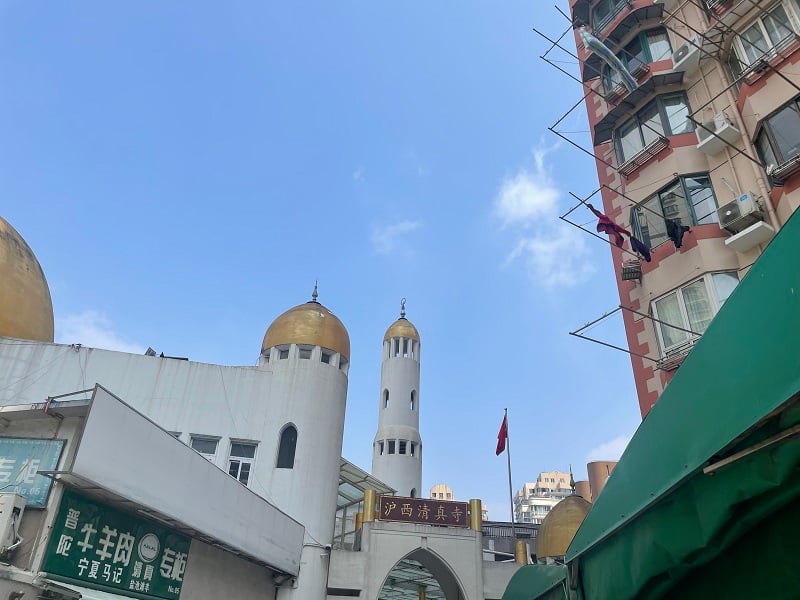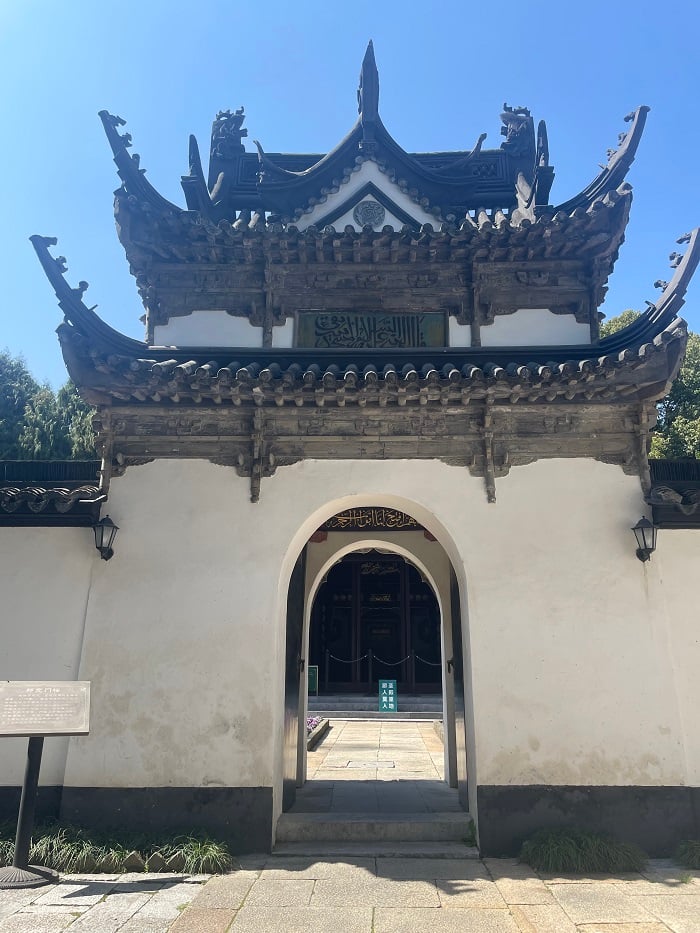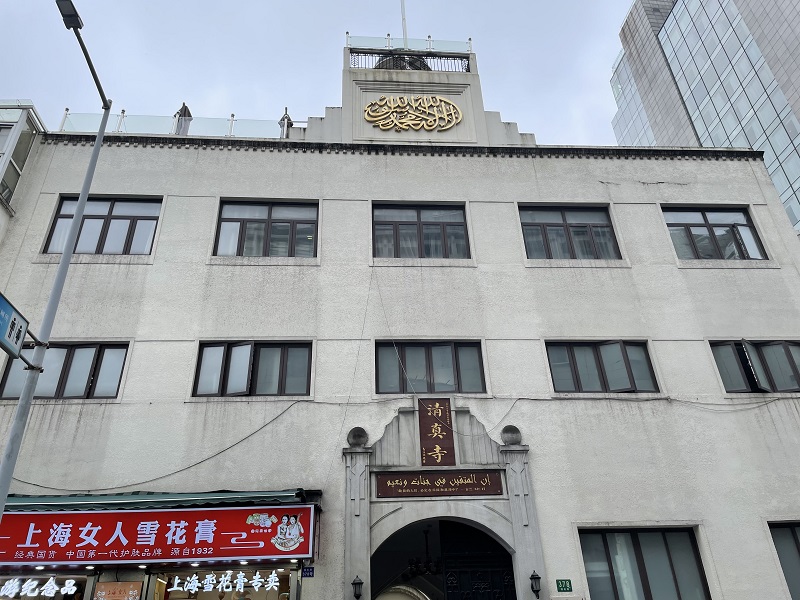Written by Zhao Gu Gammage (Haverford College), Student at CET Shanghai, Spring 2024
While I’ve become accustomed to greeting in Chinese 你好, (nǐ hǎo), I absolutely delight in using the Arabic greeting, سلام (salam). The first time I used the Arabic greeting in China was when I stumbled onto a mosque while walking along the Suzhou river.
Huxi Mosque
During the walk, I was taken aback when I saw the golden domes of a mosque nestled in between multi-story apartment complexes. I proceeded to enter what turned out to be the Huxi Mosque (沪西清真寺), one of several in the city.

As I passed columns through the arched gate and into the prayer hall, I was enchanted by the Arabic calligraphy on the archways and was most surprised to see Qurans in Arabic and Chinese. In the mosque’s gift shop, I was also delighted to see teapots featuring both languages.
Songjiang Mosque
At the Songjiang Mosque (松江清真寺), residing in southwest Shanghai, Arabic and Chinese calligraphy share the walls of the teaching halls. I greeted others at the mosque with مرحبًا (mrhban), another common greeting for hello, but got blank stares in response. I then followed up with سلام (salam), to which I received a warm سلام (salam) in return.
The Songjiang Mosque (松江清真寺) is the oldest mosque in the city. It was built during the Yuan period where China was ruled by the Mongols. During this period, Songjiang and many other areas were governed by Muslims and led to the construction of mosques in many port cities. As you can see in the Songjiang Mosque, Arabic calligraphy adorns the minaret of the mosque and other areas inside.

Fuyou Road Mosque
During Eid al-Fitr, thousands congregated in Shanghai’s several mosques. This marked the end of Ramadan, the month-long Muslim holy month where observers fast from dawn until dusk. Before the Ramadan service began at the Fuyou Road Mosque (福佑清真寺), in the bustling Huangpu neighborhood, people exchanged Arabic remarks such as عيد مبارك (eid mubarak), meaning blessed Eid, while eating dates and other small foods. The service itself was solely in Arabic. The mosque was so crowded that people overflowed from the main prayer hall into the courtyard.

Before arriving in Shanghai, I did not expect to speak Arabic. But, I’ve been happily surprised to use the language as another way to connect with Chinese people.